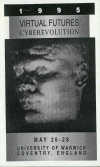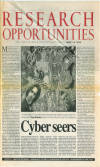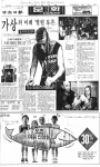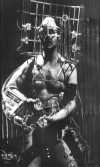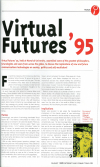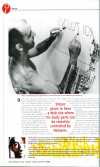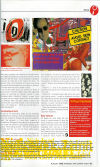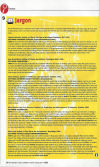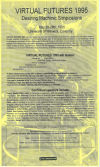Virtual Futures '95
Archive materials from the cyberphilosophy conference held at the University of Warwick in 1995. Links to external reviews and other materials are at the foot of this page.
Virtual Futures '95 was a three-day conference held at the Philosophy department of the
University of Warwick in May 1995, inspired by the neomaterialist philosophy of
Gilles Deleuze. Described at the time as the Glastonbury of cyberculture, it
was by the standards of academic conferences a massive event: nearly a hundred
speakers gave papers, and just short of a thousand people packed into the main
auditorium for the Saturday evening session. The topics discussed included
chaos theory, cybernetics, geopolitics, feminism, nanotechnology, cyberpunk
fiction, machine music, net security, military strategy, plastic surgery,
hacking, biocomputation, cognition, cryptography & capitalism.
It seems
bewildering now, but at the time 'cyberspace' was a fiercely contested concept.
Many of the panels and q&a sessions were taken up with the question of the
virtual; and a large proportion of the audience, it seemed, simply did not
believe that such a 'space' could be real. The internet was yet to enter the
public consciousness; email was used little outside the universities, and web
browsers were still relatively new. Many of the people who came to the
conference had nothing to do with the academic world, and clearly regarded
virtuality as an abstruse piece of philosophical fancy; yet they still came.
What drew them was perhaps the romance of new technology, for in retrospect the
conference was closer in spirit to the Great Exhibition than to Glastonbury.
What was on show was the hi-tech thrill of the new. In the week leading up to
the conference, one BBC radio documentary plugging the event ran interviews
with the speakers and organizers whilst playing Vangelis' soundtrack to
Blade Runner in the background. Perhaps the conferees thought they would
meet a cyborg.
In the
event, they did. In fact, they met several cyborgs. The Australian performance
artist Stelarc demonstrated his cybernetic third arm, and wired up members of
the audience with electrodes so that he controlled their movements. On the
Sunday morning, Orlan talked about her experiences of plastic surgery-as-art,
whilst showing a film of her recent facial surgery, performed under local
anaesthetic. As they watched the footage of Orlan talking to camera whilst the
skin on her skull was peeled back, several members of the audience threw up, or
ran out of the auditorium with green faces. Others passed out where they were
sitting.
Over ten years
on, Virtual Futures looks like an historical curiosity. It attempted to to
popularize philosophy as an activity and to engage the public in the most
abstract kind of intellectual debate; and in doing so, it made some of them
vomit. Stelarc memorably described the VF crowd as "the hardest drinking, most
politically incorrect philosophers in the world", an epithet which we worked
hard to justify. One wonders who would merit that title today?
